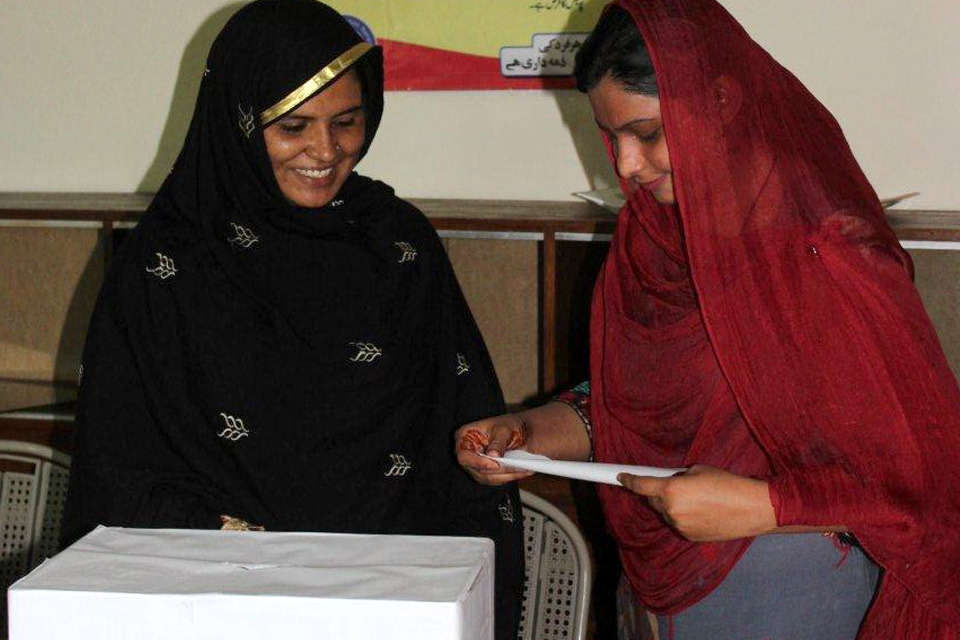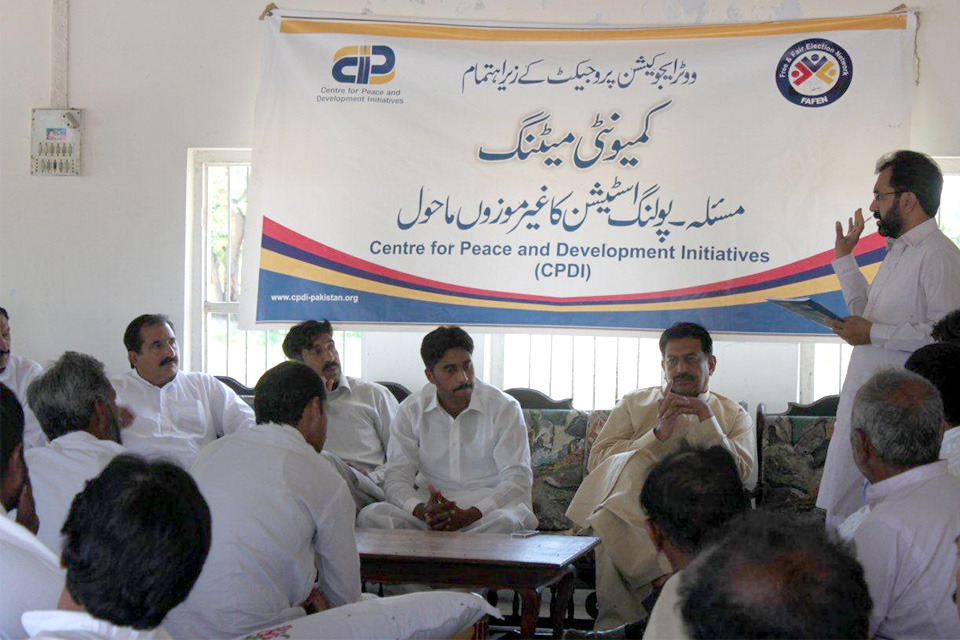Pakistan elections: Supporting women to cast their vote
British aid is helping 100,000 Pakistani women register to vote for the first time - giving them the choice to have their say on who represents them

Kausar, 25, will vote for the first time in the elections. Picture: DFID Pakistan
The 2013 general elections are a significant landmark in Pakistan’s history – marking the first transition of power from one democratic government to the next. This is also an important year for Pakistan’s women – 100,000 of whom will be voting for the first time thanks to the UK government’s Support for Transparency, Accountability and Electoral processes (STAEP) programme, which is being delivered by The Free and Fair Elections Network (FAFEN) and The Asia Foundation (TAF).
Kausar, 25, is one such voter. In the previous elections, Kausar could not vote because she did not have a Computerised National Identity Card (CNIC) and her family did not allow her to.
“I wanted to vote last time. It is our right and it is important that we exercise it for the betterment of the country, our children and to ensure the best candidates are elected,” Kausar said.
“My main problem was the fact that I didn’t know the CNIC was a pre-requisite for voting – and I didn’t have one either. My family was also apprehensive because of the area’s tradition, security and lack of polling stations for female voters,” she added.
Helping women exercise their right to vote

Kausar with Kanwal (in red), an election mobiliser, who encouraged women to register through the voter mobilisation strategy. Picture: DFID Pakistan
The UK government’s support has helped more than 122,000 women register to vote. This has been achieved through a combination of direct facilitation through partner organisations, and by encouraging women to register through the voter mobilisation strategy.
“Once I realised the importance of the CNIC through the mobilisation campaign, I was keen to get myself registered. The teams were extremely helpful in guiding women about the procedure and assisted us at every step.”
Despite registering to vote, Kausar’s next problem was to convince her family.
“Community meetings helped a great deal in convincing my family members that there was nothing wrong with women voting – after all we do so much other work – why shouldn’t we vote every 5 years. The presence of political and tribal leaders at these meetings was critical since their support for increased women participation carried weight.”
Getting the men on board

Community meetings with men play a crucial role in helping increase women's participation in elections. Picture: DFID Pakistan
As part of the mobilisation campaign, regular meetings were held with both men and women to determine the issues which keep women away from casting their vote. Some of the key issues to emerge from these meetings, which were well attended, included the location of polling stations, lack of separate polling stations for women and the threat of fighting between rival political groups.
One of the participants said, “we have certain concerns, but no one here is fundamentally opposed to women exercising their right to vote. It is equally important for women to vote so that their voice is heard. It means there are more voters and there is a better chance of electing the best representatives. There is no compulsion – they are free to vote for anyone they want.”
The presence of tribal leaders and politicians, who are vocal about participation of women in the elections, at these gatherings is reassuring for community members – since they believe their concerns are being taken seriously.
“My father attended these meetings and was hopeful that the situation for women voters in the area could improve. When so many people take interest – things will definitely get better,” says Kausar.
Such sessions, especially with male members of the community have proved fruitful, given they are the main decision-makers in these households. After identifying issues, such as the location of polling stations, mobilisers guide communities on how to get in touch with relevant authorities for a possible resolution of their problems.
Kausar believes that local leaders are slowly beginning to understand the importance of women voters.
“This time when they (politicians) spoke at these meetings, they were urging more women to vote. They said that it would mean more votes. At least they are beginning to understand that if more women participate in the elections, they could swing the outcome one way or the other – that is a powerful realisation.”